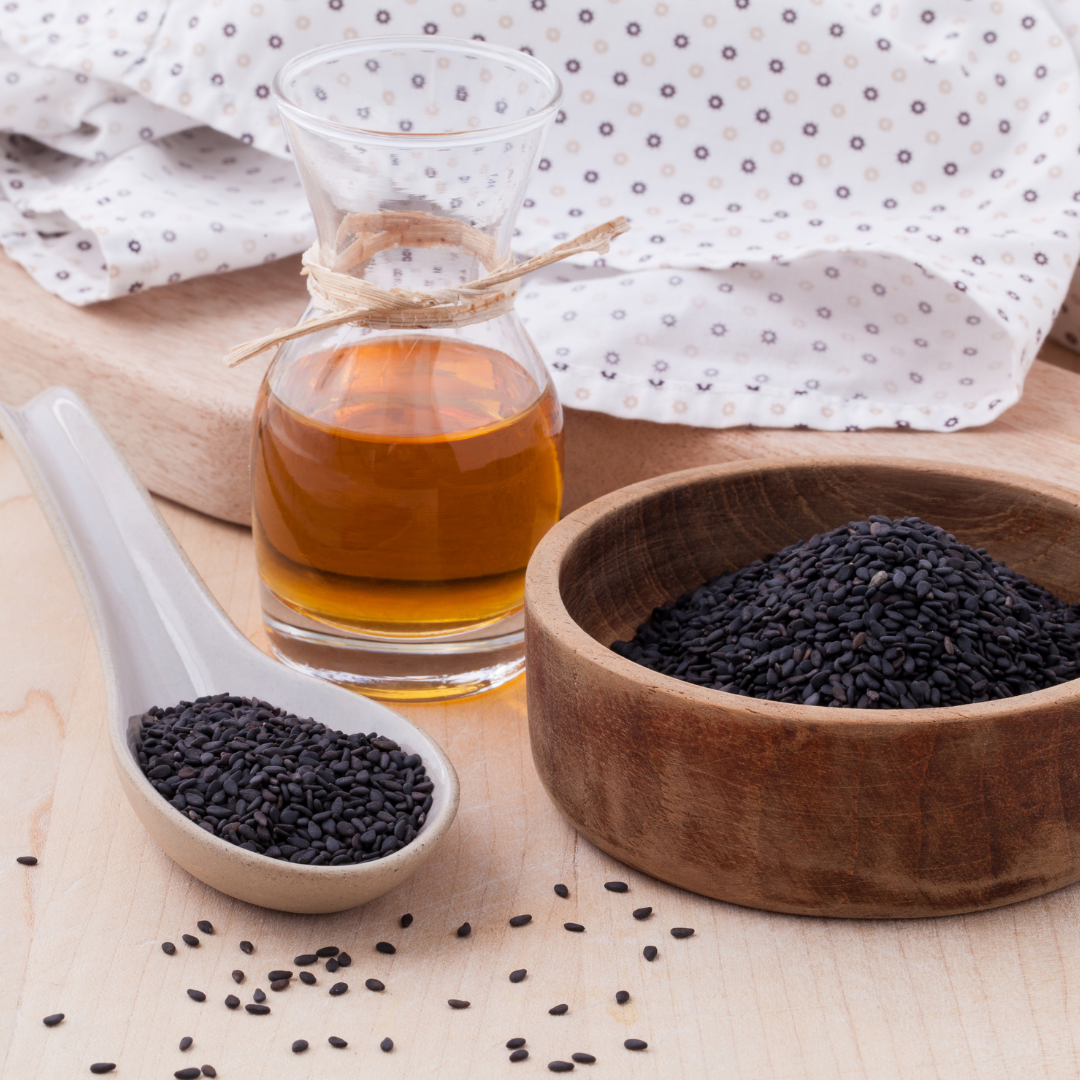 Introduction
Introduction
Black seed oil is one of the most important natural remedies in the world. It has been used to treat a variety of health conditions for centuries. Some of its benefits include: treating asthma, allergies, eczema, psoriasis, and other skin conditions; aiding in weight loss; lowering blood pressure; fighting cancer; and improving digestion.
The history of black seed oil
The history of black seed oil is long and varied. It has been used for centuries to treat a variety of health conditions. Sometimes hailed as a panacea, black cumin seeds and their oil are widely used in traditional Islamic medicine and Ayurveda to treat a variety of ailments.
The first recorded use of black seed oil was by the Egyptians in the 1st century AD. In Islamic traditions, the prophet Muhammad (peace and blessings upon him) mentioned and recommended black seed oil over 1400 years ago for a variety of health conditions, including asthma, chest infections, toothache, and head lice.
Black seed oil was also used by the ancient Greeks and Romans. Hippocrates, the father of medicine, wrote about the benefits of black seed oil in the 4th century BC. He recommended it for treating a variety of health problems, including respiratory infections, digestive disorders, and skin diseases.
The use of black seed oil continued throughout the Middle Ages and the Renaissance. In fact, it was so popular that it was often referred to as "the poor man's remedy."
Black seed oil began to lose its popularity in the 18th and 19th centuries. However, it has seen a resurgence in popularity in recent years due to its many health benefits.
What is black seed oil?
Black seed oil is a natural remedy made from the seeds of the black cumin plant. The oil is extracted by cold pressing the seeds. It is then filtered and bottled. Black seed oil is dark yellow or green in color and has a strong, pungent smell.
The active ingredients in black seed oil that are responsible for most of the oil’s health benefits, are thymoquinone and thymohydroquinone.
Thymoquinone is an antioxidant that helps protect cells from damage caused by free radicals. It also has anti-inflammatory and anti-cancer properties.
Thymohydroquinone has antioxidant and anti-inflammatory properties. It also helps improve liver function.
The difference between Egyptian and Ethiopian black seed oil
There are two different types of black seed oil, Ethiopian black seed oil and Egyptian black seed oil. They have different active ingredients and offer different health benefits.
The two oils come from different plants, though they are both in the Ranunculaceae family. The black seed oil made from Ethiopian seeds is Nigella sativa, while the Egyptian black seed oil is made from a plant called Bunium persicum.
The main difference between these two oils is in their chemical composition. Ethiopian black seed oil contains more thymoquinone than Egyptian black seed oil.
Thymoquinone (TQ) is the quinone derivative of thymoquinone and is the active ingredient in black seed oil. It has been shown to have a wide range of medicinal properties, including anticancer, anti-inflammatory, antidiabetic, and antimicrobial activity. Ethiopian black seed oil also has a higher concentration of essential fatty acids, including linoleic acid and oleic acid.
Both oils have been traditionally used for their medicinal properties. Ethiopian black seed oil is said to boost the immune system, while Egyptian black seed oil is thought to aid in digestion and help with respiratory problems.
When it comes to choosing between Ethiopian and Egyptian black seed oil, it really depends on what you are looking for. If you are looking for an oil with more medicinal properties, then Ethiopian black seed oil may be the better choice. If you are looking for an oil that is more versatile and can be used in cooking, then Egyptian black seed oil may be a better option.
The health benefits of Ethiopian black seed oil
The health benefits of the Ethiopian black seed oil are extensive. A substantial number of studies have been conducted that suggest the seeds may indeed have pharmacological potential. The seeds contain a variety of chemicals, but most of the pharmacological properties of black cumin are attributed to the presence of quinine compounds, of which thymoquinone is the most abundant.
There is clinical evidence that the seeds have antimicrobial, antiparasitic, and antifungal properties, and some animal studies have demonstrated tumour suppression. The most active compound in black seed oil, has shown promise in treating several types of cancer, including pancreatic, breast and brain cancer. Research is still in the early stages, but black seed oil shows great potential as a natural treatment for cancer.
Some of the other most notable benefits include:
-Stimulate lactation: The compound thymoquinone contained in black seed oil is thought to act on the pituitary gland to promote milk production and black seeds have been used historically for menstrual and postpartum problems.
-Treating asthma: Black seed oil has anti-inflammatory properties that help reduce inflammation in the lungs, which helps improve breathing for people with asthma.
-Allergies: The anti-inflammatory properties of black seed oil also help reduce inflammation in the nasal passages, which helps relieve symptoms of allergies.
-Eczema, psoriasis, dermatitis: Black seed oil has anti-inflammatory and antibacterial properties that can help to soothe the skin and heal inflamed tissue. Black seed oil can also be used as a natural moisturizer to keep the skin hydrated and healthy.
-Weight loss: Black seed oil has been shown to help with weight loss by increasing energy and preventing the accumulation of fat.
-Lowering blood pressure: Black seed oil helps lower blood pressure by relaxing the arteries and improving circulation.
-Improving digestive issues: Black seed oil commonly used to treat intestinal worms and are said to relieve digestive troubles.helps improve digestion by stimulating the digestive system and helping to absorb nutrients from food.
How to use black seed oil
Black seed oil can be used in a variety of ways.
It can be taken orally or apply it topically to your skin. You can also add it to your food or drink. If you are taking black seed oil orally, it is important to start with a small dose and increase gradually as tolerated. Be sure to drink plenty of water when taking black seed oil to avoid constipation.
When using black seed oil topically, you can apply it to your skin or hair. You can also add it to your shampoo or conditioner. Start with a small amount and increase as needed. Be sure to rinse thoroughly after applying black seed oil to your skin or hair.
Side effects of black seed oil
Black seed oil is generally safe to use, but some people may experience side effects. The most common side effects are gastrointestinal upset, such as nausea, vomiting, and diarrhea.
People with a history of allergies to nuts or seeds should avoid black seed oil, as it may cause an allergic reaction.
Pregnant women and breastfeeding mothers should not take black seed oil, as there is not enough information to determine its safety. Black seed oil should also be avoided by people taking blood-thinning medications.
How to choose a black seed oil supplement
When choosing a black seed oil supplement, it is important to look for a product that is high quality and has been tested for purity. It is also important to read the label to make sure that the supplement does not contain any additives or fillers.
Takeaway
Black seed oil is one of the most important natural remedies in the world. It is easy to use and can be taken by mouth or applied topically to the skin.
Black seed oil may be worth trying as part of a holistic treatment plan. Be sure to talk to your doctor first, as black seed oil may interact with other medications you are taking.
Thanks for reading!



Leave a comment